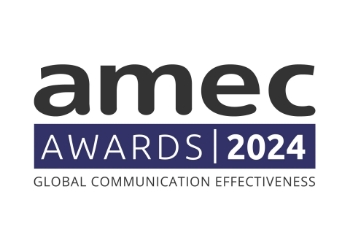The Barcelona Principles – David Rockland explains why change was necessary
By David Rockland, Ketchum Partner, Immediate Past Chairman, the International Association for Measurement and Evaluation of Communication. He explains why change was important.
It’s been five years since the industry rallied around the Barcelona Declaration of Measurement Principles, agreeing to the first overarching framework for effective public relations (PR) and communication measurement.
The original goal was straightforward: provide guidelines to measure efficacy of communication campaigns; provide a basis to enable the replacement of outdated program measurement models and ultimately to end years of debate as to whether metrics such as AVEs and multipliers should be used.
During the summer, I chaired an international working group representing the original partners involved in the Barcelona Principles of 2010: the International Association for Measurement and Evaluation of Communication (AMEC), ICCO, Institute for Public Relations, PRCA, PRSA and The Global Alliance.
Over the past five years, PR firms, companies, organizations and Government teams have adopted The Barcelona Principles.
However, the original set of Principles was never intended to be a final or complete solution. Rather, they represented a place to start.
In the spirit of continuous improvement encouraged by delegates at AMEC’s International Summit in Stockholm in June this year, we’ve gone back to the start. Our working group has identified ways to build upon the original Barcelona Principles and make them even more reflective of the industry and the way communication professionals work today.
In short, if the original set of Principles focused more on “what not to do,” the updated Barcelona Principles of 2015 provide more guidance on “what to do,” in order to unite the ever-expanding media landscape into a transparent, reliable, and consistent measurement and evaluation framework.
Barcelona Principles 2.0 goes beyond the PR sector and outlines applications for communications measurement overall. The revised Principles include greater attention to the role of qualitative methods alongside quantitative methods. The Barcelona Principles of 2015 also acknowledge the realities of working in an increasingly integrated field.
Specifically:
- We’ve widened the scope beyond PR measurement: The Barcelona Principles outline the basic principles of PR and overall communication measurement. We’ve reframed some of the language to emphasize that The Principles provide a basic foundation and are relevant and applicable to all organizations, governments, companies, and brands globally.
- We’ve reinforced the importance of integration: We recognize that in an integrated communications environment, measurement must be integrated. This means integration across geographies (global and local), across methods (quantitative and qualitative), and across channels (including paid, earned, owned and shared media).
- We’ve made a distinction between measurement and evaluation: In addition to the role of measurement, we’ve called out the role of evaluation – the actual process of using data to make a judgement on value and effectiveness of communication.
- We’ve included more focus on qualitative: Qualitative information plays an important part in measurement and evaluation, often adding color and context that helps professionals understand “the why” behind the quantitative outcomes.
- We’ve reinforced the need for all measurement and evaluation to be transparent, consistent and valid: We’ve provided more specific counsel on accepted methodologies for both quantitative and qualitative approaches, as well as suggested best practices for ensuring quantitative methods are reliable and replicable and qualitative methods are trustworthy.
A lot has changed over the past five years, but one factor remains constant: as practitioners, we must always be prepared to prove our value and the ROI of communication. As a set of professional measurement guidelines and practices, our goal is to ensure that The Barcelona Principles continue to act as a baseline that professionals can use today and in the future.





